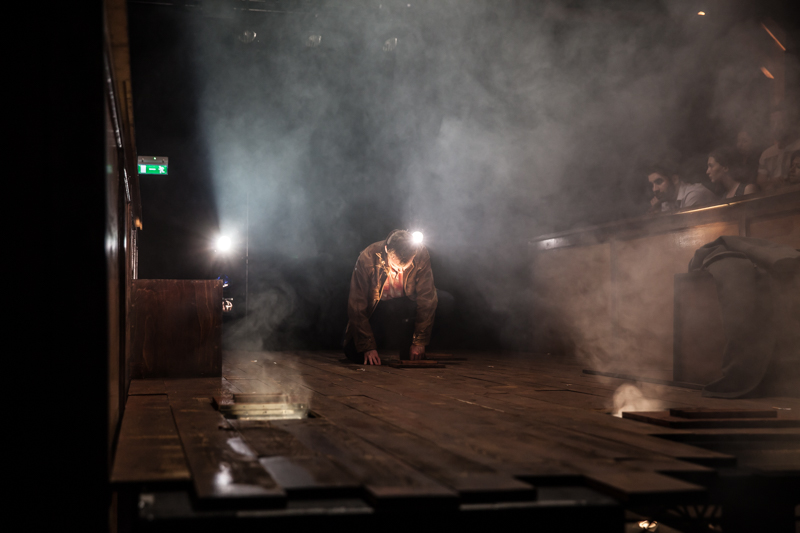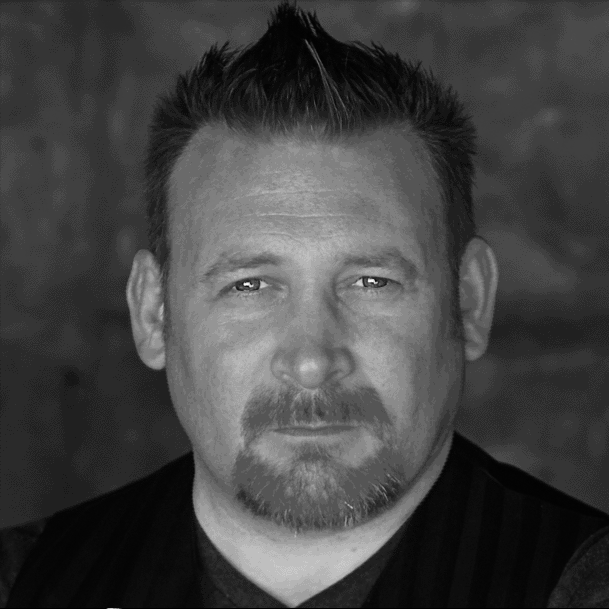Believing in Our Own Work
Ireland has always been on my radar. My father was born in Belfast, and I became an Irish citizen at a young age. I’ve always kept my finger on the pulse of what was happening over there. When I read Irish plays, I feel like the Irish are speaking to me through their characters and words. It’s a language I instinctively understand. And even though it’s a small country with a small population, Ireland puts on Irish plays in major houses and their playwrights are produced all over the world.
I trained and worked in the Canadian theatre scene for years. I had ideas, passion, and suggestions. The thing is, I’ve always wanted to work with my contemporaries, direct Canadian plays, and help catapult the careers of our playwrights on an international scale. I believe in the importance of this. But I often felt like I wasn’t getting those opportunities. And not only did Ireland offer me a model I wanted to recreate, it also offered the perfect escape to figure out how to do it.
I was accepted into a yearlong intensive MFA in directing at The Lir Academy, Ireland’s National Academy of Dramatic Art. Within my first week, I had met and connected with a number of people who had similar ideas and values as me. We were considered part of the exciting future of Irish theatre and were encouraged to let our voices be heard.
Like most major theatre training programs, I was expected to direct a production for my final grade. Throughout the year, I had gone to see many Irish plays, new and old, and their success confirmed my suspicion about the Canadian landscape: we are not doing enough to promote our stories. Our playwrights should see the royalty dollars being sent overseas. Our plays should get the same production values and marketing dollars that the big Broadway and West End shows get thrown at them. They are more than good enough to stand up to any great American, British, or Irish writer.
So when my peers and I were asked to pitch three plays, it was a no-brainer that the ones I chose were going to be Canadian, especially knowing the production would see me partnering with Irish designers and casting from a pool of mainly Irish actors. I was dying to direct something written by the playwrights I admired so. Canadian plays are workshopped constantly, but are not invested in over the long-term, not produced on our main stages. So few revivals of our plays are being done. How many theatres in Canada will produce The Curious Incident of the Dog in the Night-Time this year? How many Canadian plays will be produced on the same scale outside of Canada? Here was my opportunity.
I pitched Nicolas Billon’s play Butcher, Hannah Moscovitch’s East of Berlin, and Erin Shields’ If We Were Birds, after a generous endorsement from all three playwrights. It was tough to narrow down my decision to these three works, but they seemed to be a perfect fit based on Ireland’s love for well-developed characters.
In the end, East of Berlin was chosen based off suitability for the fourth-year actors, and I began to further explore the reason I had pitched it in the first place. Hannah’s play and voice reached beyond borders. Auschwitz and Nuremburg, referenced several times in the text, became the past one hundred years of Ireland for me. And what struck me about Hannah’s play was the complexity of her character Rudi, the son of a Nazi war criminal. I saw his relationship with the audience as a trial: Rudi asking to be absolved from the guilt of his father’s role as an SS doctor, and Rudi’s need to make us understand the choices he had made in his pursuit to do the right thing.
At The Lir, we talked a lot about creating an experience beyond the traditional actor/audience relationship. And Rudi’s trial was a way to bring the audience into the space. Our stage would be Shakespeare’s Wooden O, with the feel of the wood from both Nuremburg and the Auschwitz camp. Through this construction and formation, our audience would feel as if they were judge, jury, and executioner. Here was a play speaking about guilt, which resonated with a country still healing from the famine, 1916, the Magdalene laundries, and The Troubles.
The school production of East of Berlin that I directed was a hit and was picked up for professional production. Audiences were fascinated by the play, the characters, and, unbeknownst to them, the Canadian voice and perspective shining through Hannah’s words. People in Dublin started having conversations about Canada, and about a Canadian playwright.
This was my first real realization that what I wanted for Canadian works—to reach across borders and be produced internationally—was possible. But we have to believe in our voice. And how can we expect audiences around the world, including our own, to embrace Canadian plays if we are not bringing our stories to them? It’s very Canadian to not push our voices too forcefully, isn’t it? But compelling stories will always have international appeal, and the rest of the world can benefit from Canadian voices.









Comments